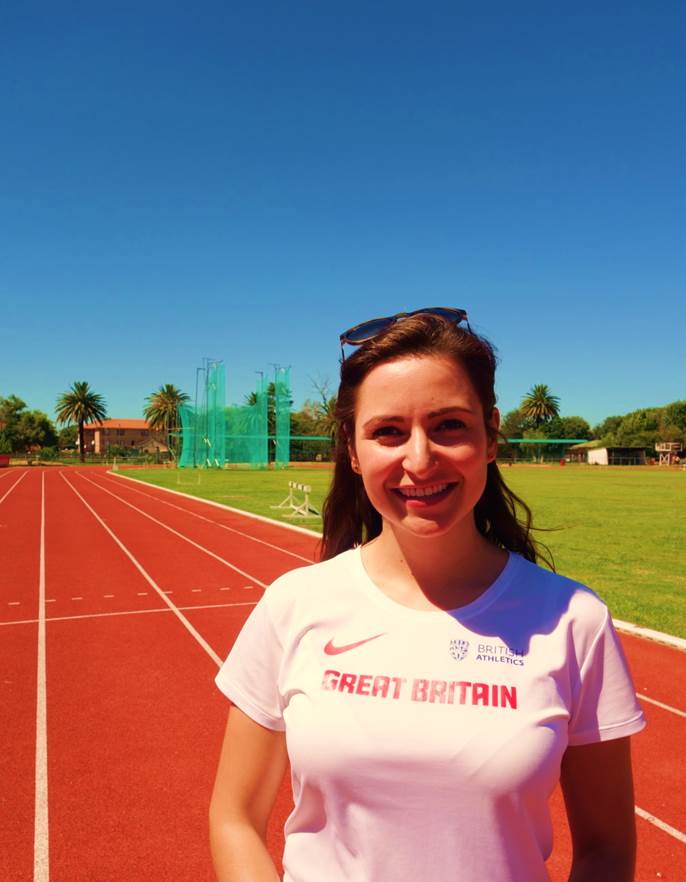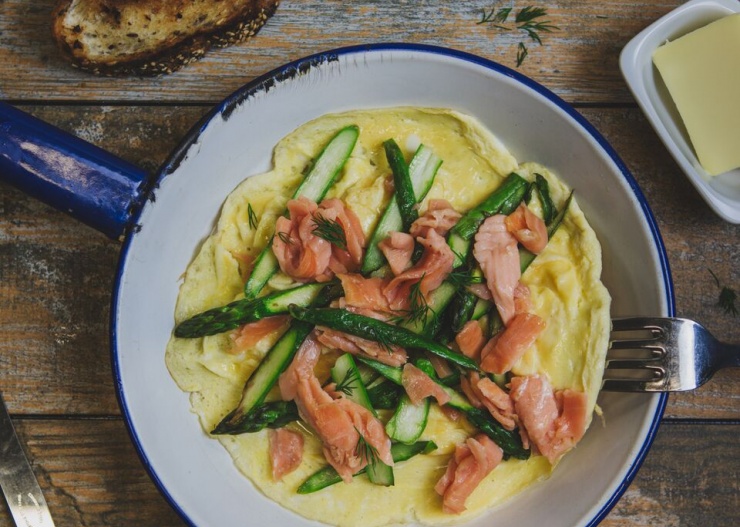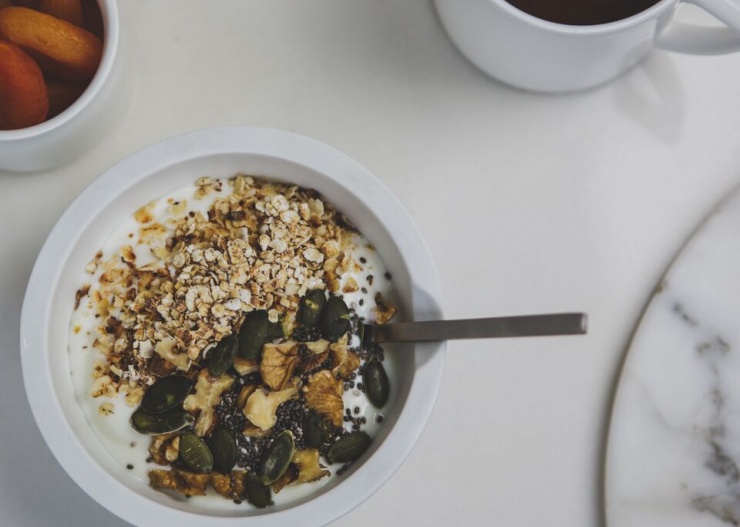Sports nutrition tips for runners and athletes
We asked Dr Sophie Killer, senior member of the UK Sports Institute Performance Nutrition team how different elements of nutrition can help enhance athletic performance. Sophie works as a Lead Performance Nutritionist for British Athletics, supporting both the Olympic and Paralympic track and field athletes. Sophie is also one of the experts who helped to develop the Food Champions Campaign.
In this article, she provides help and advice that people who enjoy running and athletics can use in their everyday eating habits to help improve their performance. To find recipes to support your training, view our nutritional hub.

How can diet affect sports performance?
There are several ways in which eating the right food can help to influence an athlete’s performance.
A big part of our role is to ensure that an athlete is fuelled to train but in a way that allows their body to maximise its adaptive response to training, as this is what ultimately enables them to improve. This means that we advise athletes on what to eat both before and after training and these are the meals that help to fuel the session and assist with recovery from it.
Another important area where we work with athletes is on competition day performance. Athletics is a sport where the participants often compete over a number of rounds over a number of days, so helping them to be fuelled to get through this in a way that works for them is very important. This element of our work is highly individualised to suit the needs of each athlete. Some athletes like to race on an empty stomach and don’t eat for four to five hours, others eat two to three hours beforehand whereas some like to have a banana in the call room just before racing. Helping the athlete find what works for them to be able to deliver the best performance is an important part of our role.
The other important ways in which we can impact on performance are around general health and preventing illness.
Keeping athletes healthy is vital in competition so we try to ensure they eat a diet that contains a wide range of different nutrients and often top this up with probiotics to support the immune system. This can be particularly important if they are travelling overseas to compete where there are the additional challenges of jet lag or the risk of foreign pathogens to consider.
Food also plays a big role in helping athletes to recover from injury. Again, we might recommend foods that support the immune system and those which contain antioxidants (such as fresh fruit and vegetables) or help with inflammation (oily fish). For athletes that are recovering from fractures or broken bones, it is important to have a calcium rich diet to support bone health.

What is a good diet for success in athletics (at any level)?
It is really important to get a healthy balance of all macronutrients and micronutrients that the body needs, so as a general principle, people should look to eat a balanced diet made-up of fresh ingredients.
When it comes to being specific about what to eat and when, the key principle is to have an understanding of the energy requirements of the exercise you are doing and what you are trying to achieve by doing it. If you are planning a long endurance run, it is wise to fuel your body with carbohydrates before you go. If you are looking to recover from this type of run, you’ll need to replace the fuel you’ve used, therefore a meal that contains some carbohydrate as well as protein will ensure the body is recovered and ready to go again.
When applying these principles though, it also important to apply common sense. There is no need to carb-load if you’re only going for a 30-minute jog, and likewise, don’t expect to get a personal best round the block if you don’t put any fuel in your body!
Are there any golden rules of nutrition you need to follow to fuel performance?
One thing that we know from science research around food is that eating protein can help fitness and sporting performance in lots of ways, however it seems to have acquired a perception that it is all about helping people to ‘get big’.
This is a slight misrepresentation of what protein is there to do. Protein aids muscle development, however it is also vital in supporting muscle recovery, thus is helpful to all athletes and people that take part in any sport. Protein from food comes in many forms and something as simple as a glass of milk can make a brilliant recovery drink after training.
What are superfoods? And are there such things as superfoods for athletes?
Whilst no official definition exists, the term “superfoods” refers to nutrient-dense foods believed to offer health benefits, often plant-based and high in vitimins, minerals, and antioxidants. Examples include blueberries, kale, salmon, and chia seeds.
As a nutritionist, I do not like the term “superfoods” and I’d much rather think in terms of a “super-diet” where people eat a mixture of all the things they need, plus a few extras of the things they love! A diet that people enjoy and can stick to is much better than telling people they need to eat certain amounts of one particular food.
Are there any food groups to avoid as a runner or athlete?
At the UK Sports Institute, we talk about “the power of food” and I like to be positive about what people can eat, rather than what they can’t or shouldn’t. It is possible to eat a delicious and healthy diet made up of lots of the things that people like; it is often just about eating the right things at the right time- and in the right quantities!

How many meals a day should you eat to improve sports performance?
This depends on what they’re training for and what their training programme looks like, so it might vary from day-to-day.
Meals should reflect people’s training and the outcomes they are looking to achieve. If people have a particularly heavy training load then it can be helpful to have an extra portion of protein before bed, such as a glass of milk, which would be perfect to help recovery.
On non-training days, meals can be ‘lighter’ (less of the energy dense foods such as starchy carbohydrates and fats) to help maintain energy balance.
What supplements should you take to help improve athletic performance?
At the UK Sports Institute, we promote the notion of ‘food first’, however we recognise that, particularly for elite athletes, there are a number of occasions when they are just not able to access food, so a supplement is the best alternative. An example of this may be after competition when an athlete needs to recover but has obligations such as a medal ceremony, media or is called into anti-doping (which can take hours!) On these occasions when they cannot eat a good meal, a supplement may be the best alternative. With a bit of forward planning, most active people can avoid the need to spend lots of money on supplements and instead plan their training around meal times or take snacks with them to training.
We only use supplements to “supplement” a good diet and only recommend products that have been certified by Informed Sport, meaning that they have been tested against banned substances.
Is one particular meal (i.e. breakfast, lunch, dinner) the most important?
There is no hard and fast rule, it really depends on what people are training for, what they are trying to achieve and their specific training regime. We call the important meals around training (before and immediately after), ‘Performance Meals’. These are the most important meals as they fuel the session and optimise recovery. Depending on when you’re training, your ‘Performance Meals’ could be breakfast and lunch, or lunch and dinner.
Which healthy recipe should every runner or athlete master?
There is not one specific dish I would recommend, however, I think that people could be more creative in making meals out of the things they have left over in the cupboards. I know lots of athletes who tell me they had nothing in the fridge, apart from some eggs and few bits of salad and vegetables, yet that could make a really tasty omelette which is a great recovery meal. Understanding more about food and having the confidence to be creative with left-overs would save people a lot of time and money.
Dr Sophie Killer is a senior member of the UK Sports Institute Performance Nutrition team where she works as the Lead Performance Nutritionist for British Athletics, supporting both the Olympic and Paralympic track and field athletes. She completed her PhD in Exercise Metabolism and Performance Nutrition at Loughborough University in 2014. Sophie has gained a wealth of experience working as a nutrition consultant with a range of elite athletes from individual cyclists, runners and triathletes through to team sports, including supporting British Basketball during the London 2012 Olympic Games and spending four seasons working in the Premier League.